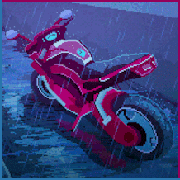|
In response to a recent pro-photography protest in Trafalgar Square, the UK government is trying to play nice with photographers:quote:The UK Policing and Crime Minister has reasserted that anti-terrorism should not be used to stop photographers and photojournalists. In a meeting with a Parliamentary photography group and journalists, David Hanson MP said the Sections 44 and 58A of the 2000 Terrorist Act should not be 'used to stop ordinary people taking photos or to curtail legitimate journalistic activity'. He also said guidance to that effect has been provided to the UK police forces, advising that these powers should not be used to stop innocent members of the public, tourists and journalists. Well, that makes it all better, doesn't it!
|
|
|
|

|
| # ? May 10, 2024 07:28 |
|
You guys ever hear of Fritz Hoffman? He spent a ton of time in china taking a ton of awesome pictures.
|
|
|
|
Helmacron posted:
The child in question in that kevin carter photograph was only a few metres from a food camp if I remember rightly, and alot of the criticism that came his way for "not helping but photographing" was unjust. Being in the right place at the right time, making your own luck, being good at what you do and being passionate about the things you photograph, and most of all being persistent, really really persistent is what it takes to become a good photojournalist. But you have to put the hours in, alot of them.
|
|
|
|
Wooten posted:I think these days its just about paying to do it yourself and trying to sell the photos later, unless you already work for some kind of publication. I think the trick is being independently wealthy or having the ability to get a hefty grant or loan. Seriously, how do people go about selling photos? I'm pretty far removed from the actual photog community but I think I have a few shots from my trip to Kashmir that might be publishing worthy.
|
|
|
|
This quote was in the Gear thread and it made me think:ZoCrowes posted:I figure it never hurts to have a fast zoom and I rarely if ever shoot at anything less than 35mm. 90% of the time I'm using my 35mm f/1.8 prime when I'm shooting with my D90 now anyway. So when are we going to see a shift in thinking from "135 frame size" to "DX/APS-C frame size"? ZoCrowes says he rarely shoots less than 35mm, but to him 35mm is, in terms of angle of view, closer to what I think of as "50mm". And what a guy shooting 120 would consider "80mm". So given that crop format sensors vastly outsell 135-format cameras, and all manufacturers are now making lenses designed for the small sensors, how long before people start thinking about things in terms of crop format fields of view? I'm sticking with 135 format as long as I possibly can, but I get the feeling that it's never going to catch up to the popularity of the smaller sensors. Even if someday you can build a 135 sensor for the same price as an APS-C today, the smaller chips will get cheaper in turn. The "full-frame" folks today will be the new "medium format" with their weirdo big long lenses.
|
|
|
|
The annoying thing is that all Nikon has to do is figure out how to make a bigger die fabrication machine and bam, cheaper full frame sensors.
|
|
|
|
HPL posted:The annoying thing is that all Nikon has to do is figure out how to make a bigger die fabrication machine and bam, cheaper full frame sensors.
|
|
|
|
HPL posted:The annoying thing is that all Nikon has to do is figure out how to make a bigger die fabrication machine and bam, cheaper full frame sensors. Not really, no. Every time a chip wafer is completed, there are a certain number of chips on it that for some reason (dust speck, micro-impurity, flawed crystal structure) just don't work. Say there are ten spots on the wafer that will ruin the chip that they become part of. When you're making tiny sensors for point-and-shoots, you might get all ten on a different chip, but you might have had 200 chips on the wafer, so your failure rate is 5%. Upsize those chips to full-frame, and while the chips are big enough that maybe only five of have included damage, you can only fit 20 on the wafer, and your failure rate is 25%. You have to throw away a quarter of that production run. I don't know what the actual numbers are, but basically it becomes much, much more difficult to make perfect chips as the physical size goes up. VVVVVVVVV Sure, and there are medium format sensor manufacturers for the people who use those, even though I bet they only sell a few hundred a year. But given that 95% of the people I know with digital SLRs have a crop-sensor, how long before 50mm is just considered in the general photography zeitgeist to be a short telephoto, and 30mm a normal lens instead of wide? orange lime fucked around with this message at 22:09 on Mar 10, 2010 |
|
|
|
I dunno, full frame is still held up as the pinnacle of SLR quality by "serious" amateurs. I don't think that's going to change anytime soon. It seems like Nikon and Canon are committed to supporting two sensor sizes for the next few years at least.
|
|
|
|
orange lime posted:This quote was in the Gear thread and it made me think: I don't think there is a problem here. The focal length of the lens doesn't change 35mm is still 35mm. I think you should just be familiar with the field of view of the system you use or are talking about. I don't even bother explaining crop vs full frame to new people anymore. I just tell them this camera uses dx lenses and you want a 35mm because 50mm might be too tight. If they get any more curious than that, then they are already aware of aps-c vs full frame.
|
|
|
|
Does anyone know anywhere I can find a book or anything by Enrique Metinides? I can only find one out of print book of his photos for a blistering 600$ on Amazon.. surely there must be more out there..
|
|
|
|
Paragon8 posted:I dunno, full frame is still held up as the pinnacle of SLR quality by "serious" amateurs.
|
|
|
|
evil_bunnY posted:No one's saying they'll stop making FF sensors. It's just hilariously hard to make big honking sensors efficiently. I think the point orange lime was making was more about APS-C becoming a standard in terms of photography like the 35mm film SLR was largely because of units shipped. I think the main thing hindering the APS-C from being the "standard" in photography even though it's the overwhelming majority in terms of units sold is just that photography as a practice is still largely traditional even if the technology is innovating. A huge part of the photography community I assume are the guys in their 50s and 60s who got into the hobby shooting film and use that as the gold standard for when the talk about gear and occasionally meet up in a camera club to shoot some poor girl in her underwear. Even if you look at most photographers under 25, they typically do a lot of experimenting with film even if it is just holgas and dianas. Nostalgia is really strong in a lot of photographers, which is perhaps to the detriment of the technical development of photography. Hell, just look at how far dSLRs have come in the past 10 years. Pretty impressive.
|
|
|
|
Canon dug themselves into a hole with EF-S, they can't abandon smaller format cameras now. I think chip size (and ISO by extension) is going to matter a lot more in future cameras now that megapixels have reached the point more-isn't-necessarily-better. I'm currently having a camera crisis because I need to upgrade in the near future and can't decide if I should go medium format or stay with Canon. H25's are ~$3000 used vs $2500 for the 5Dmk2, but I also have nothing invested in EF lenses and would need to sink another $1000 at least in that if I stay with Canon. So going Phase One would be cheaper, but it has to be tethered and no video which I need to learn. I think I am leaning toward H25 + keep 5Dmk1 as backup. I have no idea I can't make up my mind. I wonder if medium format cameras will ever be consumer affordable, but it doesn't sound like it because of the way the chips are made.
|
|
|
|
orange lime posted:Not really, no. Every time a chip wafer is completed, there are a certain number of chips on it that for some reason (dust speck, micro-impurity, flawed crystal structure) just don't work. I was under the impression that the main reason full frame sensors cost so much is because they have to be marked out multiple times per sensor whereas APS-C sensors are small enough that it only takes one go to mask them on the silicon, so you've got the difficulty factor in lining everything up for one sensor as well as the yield factor.
|
|
|
|
What are the benefits of the H25 in your anticipated work that justifies it against the convenience of a 5d2? Are you saying that you would have to buy another $1000 in glass either way?
|
|
|
|
brad industry posted:Canon dug themselves into a hole with EF-S, they can't abandon smaller format cameras now. How are you shooting with the M1 if you have nothing invested in EF? Just keep a nifty fifty around and rent the rest?
|
|
|
|
brad industry posted:Canon dug themselves into a hole with EF-S, they can't abandon smaller format cameras now. Yeah, I think a big part is also is the companies realizing that even if they do make a consumer affordable medium format camera their profit margin is going to be a lot less than an APS-C or even 35mm sensor. The ISO war is definitely the new megapixel war. It'll be interesting how they approach it due to the technical difficulties involved.
|
|
|
|
Paragon8 posted:The ISO war is definitely the new megapixel war. It'll be interesting how they approach it due to the technical difficulties involved. I'd like to see more APS-C sensors in compact cameras. If that happens, it will mirror the end of the film era when we had great cameras like the Olympus Stylus Epic with autofocus and sharp lenses in a compact package.
|
|
|
|
Paragon8 posted:The ISO war is definitely the new megapixel war. Ugh, I hope not. People already don't seem to understand the linear resolution/spatial resolution thing (ie., 10MP is not "twice as good" as 5MP) or the concept of diminishing returns. Now that the D1/D3s can shoot at ISO 100,000, I can't wait for people to completely misunderstand geometric progressions. "OMG THIS NEW CAMERA SHOOTS AT ISO 25000, THAT'S LIKE 10x BETTER THAN ISO 3200"
|
|
|
|
orange lime posted:Ugh, I hope not. People already don't seem to understand the linear resolution/spatial resolution thing (ie., 10MP is not "twice as good" as 5MP) or the concept of diminishing returns. Now that the D1/D3s can shoot at ISO 100,000, I can't wait for people to completely misunderstand geometric progressions. Why? The war is good for us as we'll get sensors with better low light capabilities out of it. Sure we're hitting a peak with MPs on a 35mm frame but there is a lot that can be done to lower noise.
|
|
|
|
Haggins posted:Why? The war is good for us as we'll get sensors with better low light capabilities out of it. Sure we're hitting a peak with MPs on a 35mm frame but there is a lot that can be done to lower noise. We hope it'll be good for us. I imagine in practice it might work out to be adding an unusable stop of ISO, just to be able to advertise a higher Max. I'm not sure why my S90 goes up to 3200 when my old rebel only did 1600 (shittily at that) - I haven't tested it at 3200 yet, but I can't imagine the results will be encouraging.
|
|
|
|
AIIAZNSK8ER posted:What are the benefits of the H25 in your anticipated work that justifies it against the convenience of a 5d2? Are you saying that you would have to buy another $1000 in glass either way? I feel like the process of medium format fits my shooting style better and now that I have a studio I am moving more in that direction. I prefer to be tethered when possible anyways. And obviously the tonal quality is way better on the larger chip, but I do want to be able to shoot video... I'm basically at equipment zero because I'm keeping the mk1 as a backup no matter which way I go, I have nothing invested in lenses besides a cheap 28-135 (I rent for commercial jobs), and the camera itself is mostly irrelevant to how I work. For the price of a mk2 + 24-105L I could get a H25 and another V lens. I've pretty much talked myself into I just am trying to figure out what I want to do about video.
|
|
|
|
I won't be satisfied in the ISO wars until you can shoot in pitch blackness at 1/250 f5.6 with little to no noise.
|
|
|
|
brad industry posted:I'm currently having a camera crisis because I need to upgrade in the near future and can't decide if I should go medium format or stay with Canon. H25's are ~$3000 used vs $2500 for the 5Dmk2, but I also have nothing invested in EF lenses and would need to sink another $1000 at least in that if I stay with Canon. brad, do you know what Getty's (and other agencies, I guess) policy on stock video from a DSLR is? Does the rolling shutter issue kill it, do they accept it at a lower rate than standard, or is it considered just as viable? I've been considering upgrading to a mk2, and if I could use it to make stock footage that would be a big selling point for me. Also, unless you've got a reason to pay MSRP I think you can probably pick up a secondhand mk2 for a bit over $2k or so now. (Although I don't think $500 or so is really going to sway you in this case.) OTOH, there's a 3rd party tethering software for Canon that I used for a copystand job that was a lot better than the steaming pile of poo poo that is EOS Utility. Can't remember the name of it, but it had a decent length free trial period, full version was $90 or so.
|
|
|
|
Paragon8 posted:I'm not sure why my S90 goes up to 3200 when my old rebel only did 1600 (shittily at that) - I haven't tested it at 3200 yet, but I can't imagine the results will be encouraging. There's a CHDK firmware for the XTi that'll allow 3200. Haven't tried it yet myself.
|
|
|
|
What I was trying to say is that usually the upper ISO levels on cameras are almost unusable, and the ISO wars might just end up adding more useless levels just for the sake of competition rather than making the lower ranges usable.
|
|
|
|
Pompous Rhombus posted:brad, do you know what Getty's (and other agencies, I guess) policy on stock video from a DSLR is? Does the rolling shutter issue kill it, do they accept it at a lower rate than standard, or is it considered just as viable? Do they not look over the footage when you submit it? The 5DII takes beautiful video of cityscapes, wildlife, beaches...the kinds of things that people often want stock video of. No rolling shutter to deal with in those. Also, I can't say I'm a huge fan of the way it the rolling shutter looks during fast panning, but I think it's pretty cool on fast-moving objects like trains.
|
|
|
|
brad industry posted:I've pretty much talked myself into I just am trying to figure out what I want to do about video. I also think video is going to be a necessary skill as a commercial service. Is a 7D worth looking at to save a little bit of money to complement your H25?
|
|
|
|
Paragon8 posted:What I was trying to say is that usually the upper ISO levels on cameras are almost unusable, and the ISO wars might just end up adding more useless levels just for the sake of competition rather than making the lower ranges usable. 1600 on a good point and shoot today is a hell of a lot better than it used to be. Heck, point and shoots rarely went past 400 back in the day. What I want to see is an f/1.8 lens for a small sensor. With a P&S sensor, depth of field should be pretty good even at f/1.8.
|
|
|
|
HPL posted:What I want to see is an f/1.8 lens for a small sensor. With a P&S sensor, depth of field should be pretty good even at f/1.8. I think Olympus made one, way back in the day (relatively speaking, in digital terms). I was trying to Google it and came across this instead: http://gizmodo.com/5476735/samsung-tl500-impressions-flagship-point+and+shoot-scores-early-praise orange lime posted:Do they not look over the footage when you submit it? The 5DII takes beautiful video of cityscapes, wildlife, beaches...the kinds of things that people often want stock video of. No rolling shutter to deal with in those. I totally agree, but have no idea how picky a stock agency/clients would be about that kind of stuff. Kind of like Lonely Planet Images specifying all images have to be taken with a DSLR greater than ten megapixels; it's not as if there's a huge difference between ISO 100 on a 5Dmk1 and a G11, and most licenses are probably for web or small-print stuff that doesn't require that kind of resolution, but whatever. Heh, for that matter, a Leica M8 or M9 would technically be disqualified by their standards
|
|
|
|
Pompous Rhombus posted:
So would an H3D, right? Or do those have reflex mirrors now? And god forbid you use a scanning back or something.
|
|
|
|
Hah this is what a 6cm x 4.5cm sensor look like on a 300mm silicon wafer, the biggest wafer size used in production Best possible case with no defects at all will only yield you with 15 6cm x 4.5cm sensors, and the fun part is that the impurity/defect rate is counted in x per square centimeter. So you can imagine the number of photo perfect (  ) sensors you can get out of each wafer is probably really, really low. ) sensors you can get out of each wafer is probably really, really low.In computer chips, we always try to shrink them down so we can put a lot more on each wafer, therefore increase the yield or the amount of working chips out of the same sized silicon. But this is pretty much impossible with photo sensors since they are basically going the opposite way and 'the larger the better'. This is another reason why I doubt nikon or canon will do away with APS-C sized cameras, it's just much more profitable for them to sell those cameras. edit: On a completely non-related note, Golden-hour calculator http://www.golden-hour.com/ DaNzA fucked around with this message at 06:40 on Mar 11, 2010 |
|
|
|
DaNzA posted:edit: On a completely non-related note, Golden-hour calculator
|
|
|
|
DaNzA posted:You can't crush my dream of a digital large format camera! <  > >
|
|
|
|
Martytoof posted:You can't crush my dream of a digital large format camera! < They already exist -- they're called "scanning backs". You just can't take a picture of anything that's going to move over 90 seconds or so.
|
|
|
|
orange lime posted:This quote was in the Gear thread and it made me think: 35mm is 35mm though. The focal length is not changing from crop body to full-frame. Just what the camera is able to "see" along that focal legth. What might change is what people consider to be the optimal focal length for newbies and things like that. I bought the 35mm lens because it's closest to 50mm on a crop body. People suggest 50mm for newbies left and right but that's because the lens is cheap and a hold over from film days. 50mm is a bit too narrow on a crop. I do the same thing although I tell people to get the 35mm if they can afford it. I go through phases with photography and whether or not I consider myself a photographer. Most of the time I shoot underwater and leave the land stuff to other people. Here lately I've started taking topside work more seriously. Two of my pro friends shoot a D3s and D700 respectively and I think full-frame is the way to go. I've seriously considered buying a FX body a few times and always talk myself out of it. I don't think I can call that nostalgia for the film days because I've never shot film. Bigger image sensor gives you better quality images.
|
|
|
|
orange lime posted:So would an H3D, right? Or do those have reflex mirrors now? And god forbid you use a scanning back or something. I sent them an e-mail (devoid of snark) asking about it and got a one-line blow-off to check the submission guidelines on their website, which was what spurred the question in the first place. I sent them a polite follow-up explaining the situation and so far got no reply (not sure if I'll get one, first was answered in about an hour, second was also sent in the middle of the workday over there but nothing). They also make no mention of their standards for film submissions, even though they have a picture of a guy with an 8x10 field camera and film SLR right there on the submission guidelines page I've wanted to shoot for LPI pretty much since I got into photography, and it's really discouraging to get this kind of response from their image desk. I thought I'd check one last time before I fully committed to Getty flickr collection, but maybe they're not worth doing business with. :-\ Pompous Rhombus fucked around with this message at 14:34 on Mar 11, 2010 |
|
|
|
ZoCrowes posted:35mm is 35mm though. The focal length is not changing from crop body to full-frame. Just what the camera is able to "see" along that focal legth. Not really. This plays into the problem. What is accurate is "focal length is focal length" it's not 35mm specific. As you say, the focal length is not changing from crop to 35mm to MF. An 80mm lens on a medium format camera is the same focal length as an 80mm lens on a 35mm camera or an 80mm EF-S lens, the only thing that changes is field of view. When people talk about how it's all relative to 35mm they are incorrect.
|
|
|
|

|
| # ? May 10, 2024 07:28 |
|
torgeaux posted:Not really. This plays into the problem. What is accurate is "focal length is focal length" it's not 35mm specific. As you say, the focal length is not changing from crop to 35mm to MF. An 80mm lens on a medium format camera is the same focal length as an 80mm lens on a 35mm camera or an 80mm EF-S lens, the only thing that changes is field of view. That's exactly what I said. Where are you disagreeing with me? The field of view (what the camera "sees" as I originally put it) changes but the focal length does not.
|
|
|





























